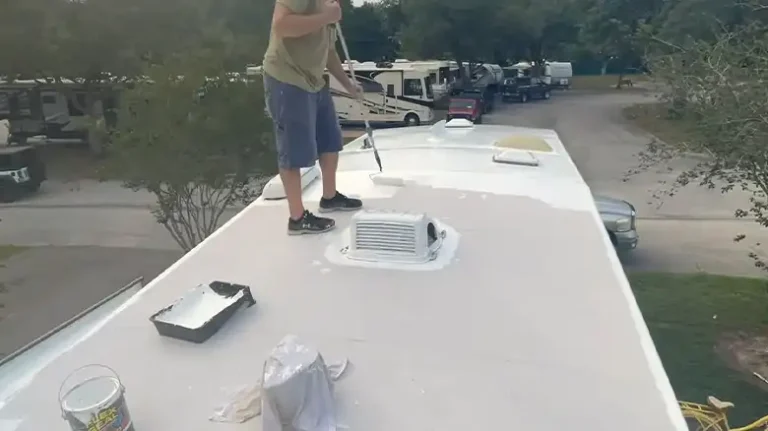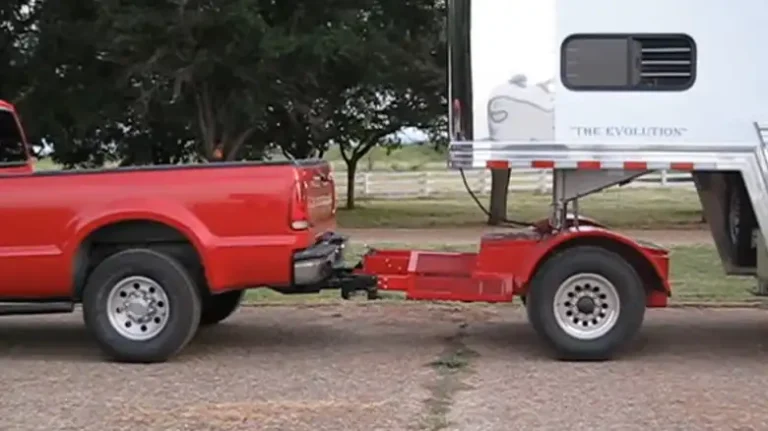[Explored] Why Is My Truck Bouncing When Pulling Trailer?
There is nothing like a trailer. Be it for carrying goods, your livestock, or a simple home on the move, you can just hook it up with your truck and be on your way.
It’s a convenient means of transporting almost anything, anywhere. But sometimes it gets a bit bouncy pulling your truck. Yes, not the trailer, but your truck.
Why is my truck bounching when pulling trailer can come to your mind with a lot of confusion. You didn’t overload, you attached everything correctly, and the road is good enough, but why is your truck bouncing? Well, the reasons can be very silly but cannot be overlooked.
Improper weight distribution, worn-out shocks, insufficient tongue weight, not using a weight distribution hitch, and underinflated tires can cause your truck to bounce. Let’s talk all about these today.

Truck Bouncing When Pulling A Trailer | Reasons And Solutions
Your truck can bounce even if you have properly loaded your trailer and everything is attached. This is because your truck or trailer is not faulty, but other factors are at play. Here are the reasons behind the truck bouncing and how you solve the issue.
1. The Weight Distribution Is Improper
You might have the proper weight on your trailer by the book. But still, your truck is bouncing. This is due to the fact that the weight is distributed improperly. Most weight should be in front of the trailer rather than the back. And if you placed the most weight in the back, your truck will bounce.
The solution to this is placing your weight in front of the trailer and then moving on to the back.
2. Shocks Are Worn Out
Your truck comes with shock absorbers. The shocks are meant to reduce the bouncing effect when you tow a trailer. If the shocks are worn out, you will experience more bounces than usual.
The best course of action here is to get your shocks checked out and replace them if needed.
3. Tongue Weight Is Insufficient
The force that your truck feels when towing the trailer, is called the tongue weight. This should be between 10 and 15% of the total weight of the trailer itself. It is measured from the hitch to the axle of your trailer. If the tongue weight is too low, the truck will bounce. And your trailer will away from side to side, and nobody wants that.
If you don’t have enough weight, you can use a weight distribution hitch to adjust the tongue weight.
4. Improper Use of A Weight Distribution Hitch
While weight distribution hitches are a great tool for reducing truck or trailer bounces, it can also cause problems if not used properly. Getting the correct WDH for your trailer is necessary. And oftentimes you don’t need it.
Make sure you use a WDH when it is needed, and also use the right one.

5. Tires Underinflated
You do need flattened tires when you are in a sandy desert or beach. This is done so you can maneuver your truck easily. But when you are towing a trailer, your tires should be inflated to the recommended pressure. Otherwise, your truck or trailer will bounce.
Make sure the tires are properly inflated, always, before pulling a trailer.
Frequently Asked Questions and Answers (FAQs)
How do I stop bouncing when towing?
You can stop your vehicle and trailer from bouncing while towing by distributing the weight in the correct manner. More weight should be placed in front of the trailer and less on the back. Also, make sure the weight distribution hitch is the right one for your vehicle and trailer. Your vehicle tires should be inflated properly and shock absorbers should be in good condition.
How do I stop my trailer from bucking?
Bucking happens when your trailer hitch is not properly tightened. Make sure that your trailer hitch is tightened and in place to stop it from bucking.
What causes jerking when pulling a trailer?
The cause of jerking when pulling a trailer is because of the actuator. This mechanism is a surge brake hitch that extends when you pull away and slides in when you slow down. Which may give the impression of jerking sometimes.
Conclusion
Your truck bouncing might not look like a big deal at first, but it can turn into a serious issue while you are towing down the road. An accident is meant to happen, all because the weight distribution is not accurate, or the shock absorber is damaged. And if it rained recently, you can slide into a ditch. So checking your truck, load, and trailer before moving out is the best possible action.







